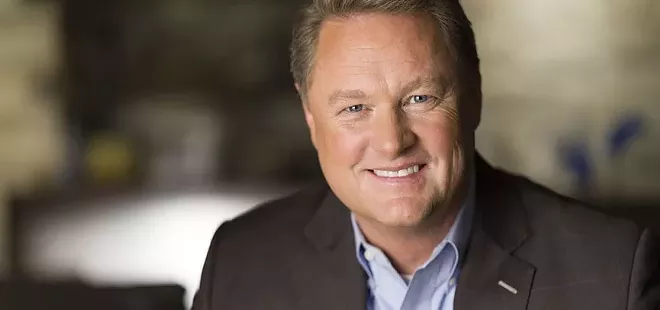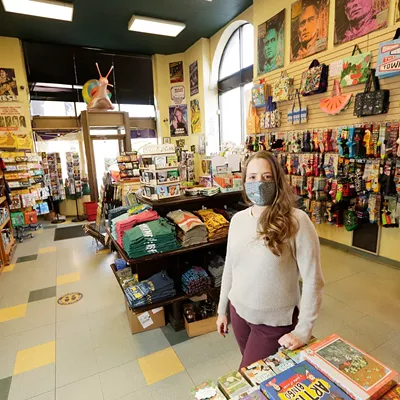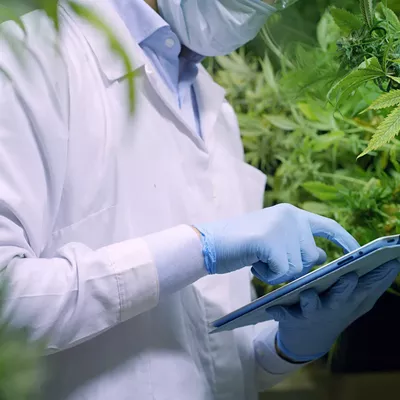For those who've been listening to the drumbeat of depressing coronavirus news for two months straight, the slightest inkling of good news can engender a lot of skepticism.
But in an interview on Wednesday evening, Idaho's Tommy Ahlquist — a former emergency room doctor, a developer, an unsuccessful gubernatorial candidate, and the recent co-founder of Crush the Curve Idaho — presented the Inlander with not just one but two pieces of good news.First, he claims that Idaho now has enough tests.
Second, he says he thinks Idaho is about ready to slowly open up its economy again.
After all, this is not a new virus — not anymore. Ahlquist argues that Idaho can learn from other countries that have done it right.
"I think most business leaders have been sitting back wondering what the heck are we doing and how do we help?" Ahlquist says.
"We've rallied 28 CEOs," Ahlquist says. "We're going as hard we can to figure this out."
They started shelling out money to reserve spaces at commercial labs throughout the country for test processing. They called up suppliers and began ordering hundreds of thousands of testing kits. It's been an exhausting marathon. He says he hasn't even paid attention to his kid for the past two weeks.
“This is like building the airplane when we’re flying it," he says.
"We're going to test another 18,000 people for antibodies in the next week," Ahlquist says.
In a press conference on Thursday, however, Idaho Gov. Brad Little celebrated an enormous increase in testing capacity, but wasn't quite ready to declare victory on the testing issue.
But he said that Idaho wasn't quite ready to start focusing on testing large numbers of people without symptoms.
But Ahlquist is undeterred by Little's caution.
"The state can run 200 [tests] a day," Ahlquist says. "We can run 4,000 a day. We’re running significantly less than that. There’s not a lot of people coming in for testing."
In other cities throughout Idaho, Ahlquist says that Crush the Curve has been partnering with existing hospitals and health-care systems, sending hundreds of testing kits to locations like
Still, in a press release Friday from Little's office announcing the formation of Testing Task Force, task force co-chair Jim Souza indicated there was still work to do.
“We know that testing capabilities have been limited in too many areas and we are glad for the increasing capacity that is coming online in multiple areas,” Souza said in a press release.
That doesn't necessarily mean you can walk into the hospital in an extremely rural community like Grangeville and automatically get a test today. But as time goes on, Ahlquist says, Crush the Curve will be able to provide testing kits to increasingly rural communities.
Right now, the results from the tests, he says, are telling him two things: That there's not much immunity in Idaho right now — but there's also not much disease. They haven't crushed the curve, Ahlquist says, but they may have temporarily flattened it.
On Thursday, Little laid out his step-by-step plan for loosening the state's coronavirus restrictions, tied to specific epidemiological benchmarks.
There will be future outbreaks, Ahlquist predicts. But with enough testing, he hopes, they'll be able to rapidly identify the sources of that outbreak and then contact the people they have may have infected and then quarantine them.
And so lately, Ahlquist hasn't just been criticizing those who call the coronavirus a hoax — he's been criticizing those who he feels are too cautious when it comes to reopening Idaho's economy.
Remember, most epidemiologists sit behind government funded desks and have never run a small business.
— Tommy Ahlquist M.D. (@TommyAhlquist) April 20, 2020
Even if the perfect way to handle this pandemic is for everyone to sit home for the next 6 months, IT IS NOT REALITY.
Be helpful. Let’s get back to work.#CrushTheCurveIdaho
(Wilson Criscione contributed to this report)We need to start managing this crisis like we have testing available, because WE DO!
— Tommy Ahlquist M.D. (@TommyAhlquist) April 24, 2020
Continuing to lead and manage COVID-19 like it is February 1st is not helpful.#CrushTheCurveIdaho


























